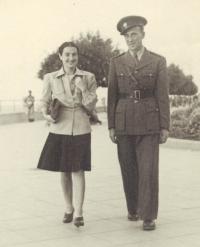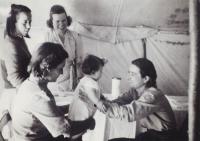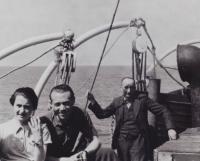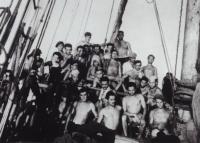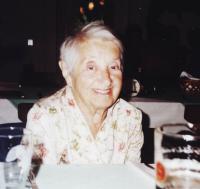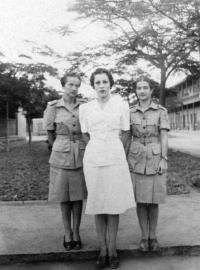„I went to many embassies but if you didn’t have anybody who would sponsor you with a lot of money you got nowhere. There remained no other option for me but to emigrate illegally to Palestine – with no money and no passport.”
Anna Plačková, born Wagnerová, was born on August 30, 1913 in Svitavy. She grew up, however, in Brno. She comes from a middle-class Jewish family. She attended a German primary school and a grammar school for girls. After that she graduated from the School of Medicine at the Masaryk University. She graduated on March 10, 1938. She briefly worked in a country hospital in Nechanice near Hradec Králové as a secondary. She was dismissed by the time of the mobilization. She moved back to Brno where she was assisting the Jewish community in its activities. In 1939 she illegally emigrated to Palestine. By that time her father wasn’t alive anymore. Her mother refused to emigrate, stayed in Brno and later died in a concentration camp. In Palestine, she had many jobs (nanny, photographer, laboratory assistant, clerk). In 1943 she married an officer of the Czechoslovak army. They reunited again only after the end of the war in Czechoslovakia. Shortly after the war the Red Cross sent her to a military refugee camp of the UNRRA on the Sinai Peninsula where she served as a doctor. In the camp were 30 thousand detainee families mostly of southern-Slavic extraction. Those were people involved in the Communist resistance movement. The medical staff of the camp consisted of nurses and doctors from all around the world. After a hard beginning she and her husband in 1947 moved permanently to Prague. After February 1948 both entered the Communist Party. Her husband withdrew from the Party in 1968.

